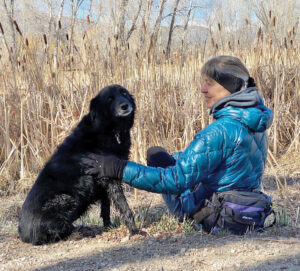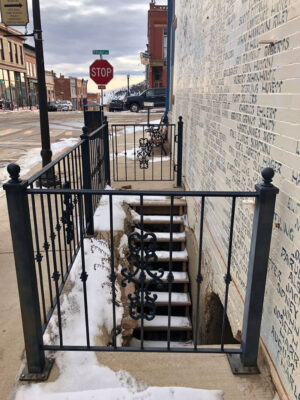By Martha Quillen
This year’s Fourth of July celebrations will likely be less boisterous than usual because Americans are ailing. Coronavirus, however, may not be the most serious challenge facing us this year.
This spring, President Trump was being his belligerent self, threatening to shut down Congress, blaming Obama for the pandemic, and revoking health care for trans-gendered Americans. Now Joe Biden is following in his footsteps.
In mid-June, Biden declared he would pressure Mark Zuckerberg to regulate Facebook’s political content, a call for censorship that’s every bit as audacious and autocratic as Trump’s troubling tactics. Biden started criticizing Facebook long ago for failing to “fact check” posts about his son Hunter’s work in Ukraine. The whole Ukraine/Hunter mess was subsequently examined by our government in connection with President Trump’s impeachment hearings. Not much came out, but the internet contains enough negative information about Hunter to make a father cringe. Biden’s vendetta is as Trumpian as an issue can get—meaning personal and more likely to turn Americans against each other than to harm its intended target.
As a teenager, I became obsessed with the idea that people and nations took on the traits of the enemies they warred with. The United States had resisted the first world war, but after fighting Hitler, an avaricious warmonger, we fought in Korea and Vietnam. In subsequent years, I became convinced I was right. Once we had been war adverse, but after beating Hitler we became relentless warriors bent on furthering our victories. We sent troops into Grenada, Panama, The Persian Gulf, Bosnia and Herzegovina, Afghanistan and Iraq. Kennedy confronted Cuba. The Carter administration assisted Afghani efforts to drive out communists, and under the Reagan doctrine we aided anti-communists guerrillas and resistance movements in Africa, Asia and Latin America. We founded the Department of Defense, the CIA, the NSA, DEA and Homeland Security. We declared wars on drugs, gangs, crime and terror.
I’m not sure why I came up with this theory, but reminders of war were all around me. Years before I was born, my father served in North Africa, then Italy, and he and his friends frequently talked about the places where they’d fought.
When I was in junior high, I lived in a suburb of Washington D.C., and my best friend’s father was a doctor at Bethesda Naval Hospital. The hospital was within walking distance of her home, and movies there were ten cents. Vietnam was rarely a talking point on the news then, but you couldn’t hang out at a military hospital without being aware of it.
Another friend’s mother had been rescued from a Nazi concentration camp—where the rest of her family had died. My friend was understandably obsessed about her family’s past, and I listened to her concerns about her mother, who always wore long sleeves and never talked about what had happened to her.
Then my family moved to Denver, and my house was in a new development off of Sheridan Boulevard next to Fort Logan National Cemetery. Today, my old house sits immediately behind the cemetery. But when I lived there horses grazed behind our fence on land a rancher leased from Ft. Logan. The cemetery was just starting to bury people near the Sheridan exits then, and the new section was dismal and treeless, with sod so fresh it sank in the mud on rainy days.
I remember walking past services. Young mothers with small children stood in the cold accepting their folded American flags, that macabre souvenir of service. It made me incredibly sad then, and it makes me even sadder now that I realize how young those men actually were. I thought my father was young when he died at fifty-seven. I thought my husband was young when he died at sixty-one.
W
hen I was in high school there were 7,000 people buried at Ft. Logan, today there are 125,000. My mother-in-law was buried there not so long ago, and the difference is amazing. In back of the house where I once lived there’s now a lake and a sea of crosses. It’s beautiful—but somber. There is no getting around it: Death is an inevitable consequence of war, pandemics and life.
But is war as inevitable as death? And what about culture wars? Are we absolutely powerless to stop them?
It seems to me there have been times when Americans got along much better—albeit there were likewise times when we got along worse (the civil war being one of them). In Chaffee County, citizens from both parties once shared views about better health care and immigration reform. State Senator Tom Massey (Republican) held meetings on health care issues at which Democrats and Republicans alike clamored for more reliable and affordable coverage.
Neither my husband nor myself ever tended to vote a straight party line. In retrospect, our inconstancy likely came about because we started out as reporters and usually went to both parties’ events and voted for the candidates we grew to trust. I’m still not big on ideology or political parties and don’t consider myself a socialist, communist or capitalist. I figure nuns and monks are communists. Members of community gardens and shopping cooperatives are socialists; and nations tend to be capitalistic—no matter what they call themselves.
Also, if there is one thing I feel no representative can possibly do, it’s stick with the ill-defined, open-to-interpretation theories our political parties are based on.
For several decades now, I’ve been a Democrat, but mostly because I tend to be tolerant about other people’s belief systems, which used to be a Democratic trait. But no longer. In recent years, Democrats increasingly talk about their need to “educate” opponents, make medical choices mandatory, and establish rules for correct discourse, Internet use and family relationships.
In much the same way our country grew more militant after World War II, Democrats have grown more domineering and blustery since Trump became president. Today both parties seem intent on controlling people’s lives. One side would like to impose its morals while the other side wants to enforce its standards. But neither side tries very hard to convince opponents of its righteousness, probably because both parties regard opponents as too ignorant to reach.
In the May Colorado Central, Dave Novak wrote in to cancel his subscription because he can’t “take the negative hits on Trump by Rosso.” I’ve got to admit, I never even noticed any hits by Rosso, likely because some of my Facebook friends blast Trump so heatedly it’s surprising their keyboards don’t melt. I find myself responding all too often, trying to get them to see that maybe they’ve gone too far. But then I feel bad, because who isn’t angry about politics these days?
America is no longer merely a divided nation. We are fractured. How did political discourse get so personal? Why do political spokesmen disparage the voters rather than seriously addressing issues?
I empathize with citizens who feel assaulted, but harbor no sympathy for President Trump. Trump routinely calls his opponents names, lies about their records, and rudely mocks women he considers fat or unattractive. If Trump can’t take insults, he shouldn’t shovel them out.
I don’t, however, hold that against Trump supporters—any more than I hold myself responsible when Democrats misbehave. I figure Trump supporters like him because he obviously likes them; whereas Democrats make it all too clear they don’t. It seems to me that Democrats have been ferociously fighting Trump tit for tat, snidely countering our president’s mean comments and letting their venom pour out onto his supporters and the regions they live in.
During the last few years our cultural conflicts have escalated, and many Americans no longer trust their government, neighbors, information sources or future. Too many Americans today feel alienated, vilified, unappreciated and endangered. We need a president who won’t make things worse, but at this point both candidates seem more intent on fomenting revolution than governing a united people.
Quillen shares her worries with her keyboard, and it assures her all will be well.
Quillen’s Corner is sponsored anonymously.


